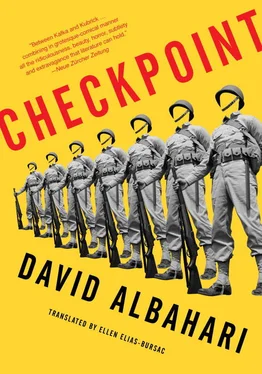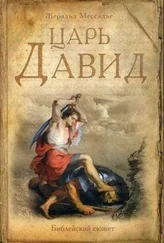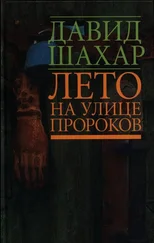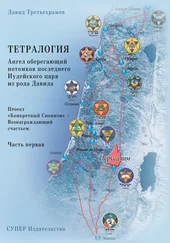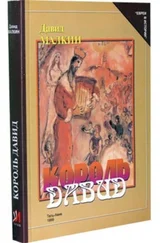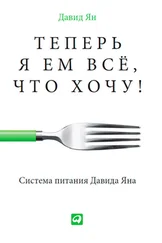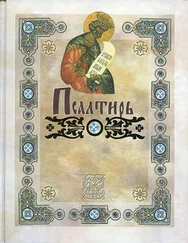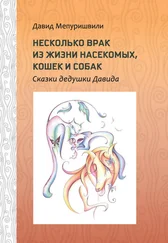There were also two latrines near the barracks dating back to whenever, slapped together from unpainted boards and thick with flies and spiders. In one of them, the next morning, a murdered sentry was found. The ones who saw him said he was sitting there, his pants down around his ankles, with a nasty gash across his neck. His gun was propped in the corner, and everything was drenched in blood. When he saw him, the commander cursed with a gasp, spun on his heel, and returned to his office. We stayed outside and spoke in whispers. The sun climbed higher in the sky, and the day warmed. Clouds of flies swarmed around the latrine. They hung in the air like clusters of grapes, and soon the sentry’s entire body had begun to look more like a blackened mummy. The commander finally came out, and when he addressed us we could smell the drink on him. He set two men to digging a grave, then other soldiers joined in and soon the grave was ready. “The priest,” said the commander, “where’s our priest?” He was referring to a soldier who, after three years as a seminary student had transferred to the school of natural sciences and mathematics to study physics and chemistry. The commander dispatched four soldiers to fetch the dead body, and soon they returned, toting it on the door they’d pulled off the latrine hinges, and behind them swarmed and quivered the clouds of flies. “Quick,” said the commander. “Make it quick.” The “priest” began mumbling and chanting, the murdered sentry was rolled into the grave, the military-issue shovels scooped in the dirt, and, in the time it took to clap two hands together, a mound of black and greasy soil piled up before us. Only later did someone think to poke an improvised cross into it, but we never learned who. Nor did we find out who killed him, because after the first rumors of some sort of forest avengers lurking in treetops and waiting for us to drop off to sleep before creeping in and murdering someone, a question arose, which nobody uttered aloud, but which struck all of us as a genuine possibility: what should we do if it was one of us who’d done him in? We don’t know who first thought of the question, but afterwards it could easily be seen traveling from soldier to soldier, always scribbling the same astonishment on their faces. In the evening the soldiers tossed and turned for hours, sleepless, chilled by the thought that if the killer were already in their midst they might be next on the list. They dropped off to sleep in the most varied postures, on the floor by their cot, with elbows on the windowsill, or by the front door—a cigarette between fingers, until, in the end, the commander flew into a rage and said he’d ban all smoking. And even if he hadn’t blustered as he did, smoking was on its way out. Whoever still had a pack tucked away hid it like a snake hides its legs; as there was no opportunity to stockpile tobacco, the same fate awaited them all. It’s easy to imagine that this worry was what pushed the men to talk among themselves about how to make their way back through the forest. We won’t just sit here, will we, waiting for someone to stab us, one by one, in the back? They called for the commander to do something, and, after conferring with his officers, he ordered the formation of two squads of scouts. The squads were identical, three men each; one (in each squad) carried a light machine gun, while the others were armed with lighter weapons and hand grenades. The squad leaders were also issued flare guns; what with the total lack of all communications this would be their only way of signaling their location if they were in crisis. The commander wanted at first to assign Mladen to one of the squads, and the soldiers themselves assumed he would, but then the thinking prevailed that Mladen should be reserved in case there was a search for one or both of the scouting parties. And so it was that the next day at dawn both squads lined up by the checkpoint barrier, one on one side, the other on the other, heard what the commander had to say, saluted, and marched off down the hill. As we’ve already said, the distance from the checkpoint to the foot of the hill was almost identical on both stretches of the road, and the groups reached the points where the road curved off into the forest at nearly the same moment. Once they were all out of sight, a hush settled over those of us who still stood around the checkpoint. The first to speak was the commander, who asked what there was for dinner, though he knew the answer every bit as well as all the rest of us: mac and cheese, beet salad, and a large chocolate-chip cookie. This was when someone thought to ask whatever had happened to the tattered scrap of fatigues found in the bushes, did anyone know? “Yes,” said the commander, “of course, we examined the uniform, or, I should say ‘the scrap,’ since somebody had ripped the uniform to shreds.” This was followed by a thorough disquisition on how many scraps there had been, the force required for ripping them, and, ultimately, how there was nothing left to suggest where the uniform had been manufactured and obtained or who had worn it. The only item available to shed some light, though a feeble light rather than a strong one, was a tarnished token with the number 5 pressed into both sides. “Such tokens,” explained the commander, “are usually used for public telephones or metro rides, but there are no insignia to suggest which city or state uses such a token. And perhaps it’s no longer in use,” continued the commander. “It may be a vestige of some long-gone time, a memento, perhaps, that its former owner held on to for years and then forgot in the back pocket of his discarded fatigues. Who knows, he may be searching for it anxiously as we speak, rifling through everything he owns in vain.” The soldiers’ faces fell and they patted their pockets where they, apparently, carried similar mementos. One soldier asked to inspect the token, and it quickly traveled from hand to hand, but no one could say anything about it. There were several arbitrary guesses that don’t merit mention. Better, now, a word about the strength of the forces assigned to guard the checkpoint. We’ve said nothing about this so far, and later there may not be time. So, under him the commander had a cook and a nurse, and three ten-man units, each with a junior officer as leader. The nurse also served as clerk, quartermaster, radio and telegraph operator, and probably even more. No longer, however, could we speak of three ten-man units; the murder of the sentry in the latrine meant there were two fully manned units and one only partially manned. Perhaps the word “murder” was not the best, as there had been no official statement yet as to cause of death. A few wanted to call the murder a suicide; to do so would relieve the army of responsibility, but in this case that would have been ludicrous. The gash on the right side of his neck could never have been inflicted by the sentry himself, especially as he was right-handed. A suicide would have been easier on the rest of us; there’d have been no need for special caution when we used the latrine. But knowing someone had ambushed him while he was in there groaning and straining to expel his waste, the soldiers began going to the latrine in pairs, sometimes even in a gang of five or six. And while one of them sat inside, the other or others would stand guard. Night, however, posed a problem: no one dared venture out to the latrine in the dark, so we prepared a small room to serve as a nighttime toilet. The two, three buckets were carried out as soon as we woke, emptied, and cleaned for the next night. Fortunately, the soldiers were mainly young men, and there weren’t many who had to slink off to the buckets at night, but nevertheless all soldiers were assigned to the duty of hauling them out and emptying them—not a task they enjoyed, but if everybody could be happy all the time there’d be no army, right? The commander was unbending and ready to punish anyone who disrupted the order; he was right there, the next morning, to carry out the first bucket, sloshing with urine and excrement, and dump it down the latrine.
Читать дальше
